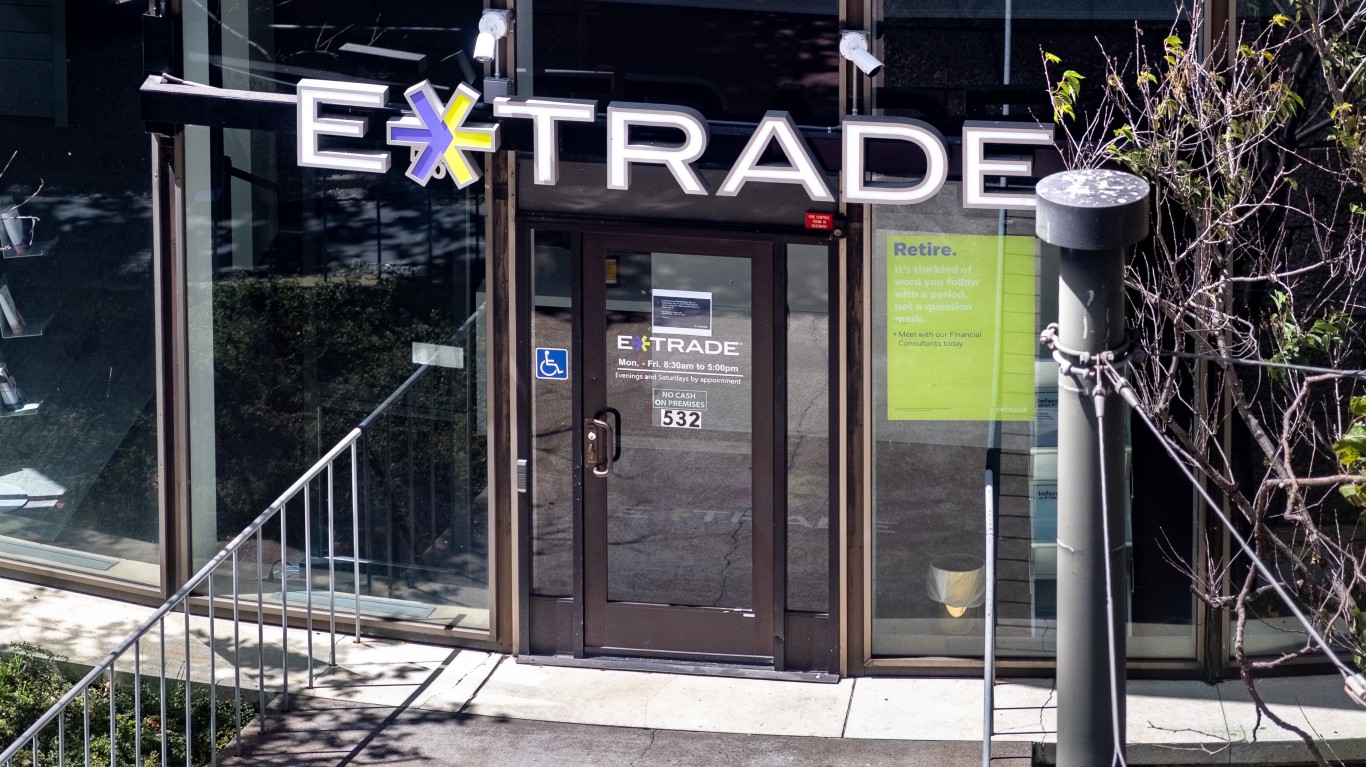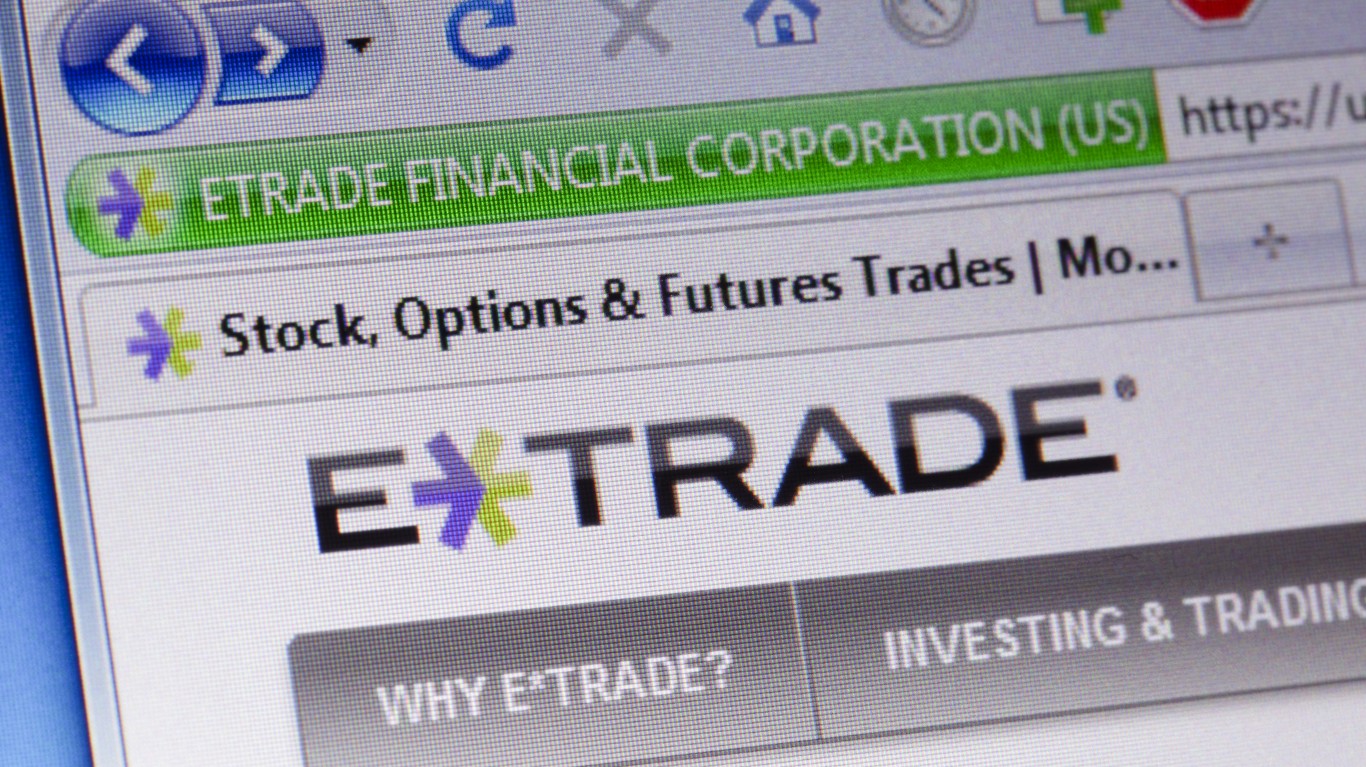Banking, finance, and taxes
E*Trade Premium Savings Account Review: Is It Worth It?

Published:

As Americans slowly realize they are being scammed with regular savings accounts, premium savings accounts have grown in popularity. While banks would prefer you keep your money in low-yield accounts, they have begun to offer accounts with more features and higher yields in order to retain customers. E*Trade is no different.
Premium savings accounts, also known as high-yield savings accounts, offer the same (and in some cases, increased) features customers are looking for, along with more returns on their money. But which high-yield account should you choose and what are the differences?
Here is everything you need to know about E*Trade’s premium savings account and how it stacks up against other similar accounts.

High-interest savings accounts are growing in popularity, but given the lax and confusing laws surrounding banking in America, we are naturally wary and cautious when it comes to investing our money with big financial institutions. In the name of transparency and helping everyday Americans get the information they need to save for their future, we looked into E*Trade’s Premium Savings Account.

High-yield savings accounts are exactly what their name implies: a savings account that offers a much higher annual percentage yield (APY) than traditional savings accounts.
In order to offer higher interest rates, high-yield accounts usually are online-only, forgoing any physical locations and not allowing in-bank assistance for customers. This means that these accounts don’t have to worry about paying employees or leases on physical buildings, so those savings are passed on to the customer (in a small part).
Banks will still put limitations on high-yield savings accounts like balance minimums, transaction limits, withdrawal limits, and monthly fees. So, if you are tempted by the high interest rate, it would benefit you to look into the fine print of the account before you end up with your money stuck in an account you don’t like.

In order to attract, or retain, customers with its premium savings account, E*Trade offers a few account perks in addition to higher interest rates.
As of April 2024, the interest rate paid on E*Trade’s premium savings account is 4.25% APY. It also offers FDIC insurance for accounts up to $500,000, requires no minimum deposit, and charges no monthly account fee.
As a digital-only account, customers will be able to manage their accounts on the website or on the mobile app.
The main perk, of course, with having an E*Trade premium savings account, is the proximity to your investment account at the same company. If you already have a trading account with E*Trade, then it makes a lot of sense to move your uninvested savings into the premium savings account to make it easier to transfer your money for future trades and have all your accounts in one place.
On the other hand, if you don’t already have an account with E*Trade, or plan to have one in the future, it might not be in your best interest to open a premium savings account. There are other accounts with higher interest rates that are tailored to whatever purpose you want to use your money for.
That being said, a modest 4.25% interest rate is nothing to sniff at. Keep in mind, of course, that these rates, as with all high-yield savings accounts, are variable based on how much money you have in your account, and they can change at any time. Currently, the rates are the same for accounts of all amounts including under $5,000, over $500,000, and all account tiers in between. E*Trade doesn’t have to alert you when interest rates change, either.

The average interest rate for savings accounts in the United States is .46%. This means that if you keep your money in a typical savings account, you are losing money every year and paying the bank for the privilege of doing so. Welcome to America!
High-yield savings accounts beat this average by only a small amount, but that amount adds up over time if you have enough money in your account.
There are too many high-yield savings accounts to compare here, and their rates and benefits change all the time, so we encourage you to look into any financial institution you might be interested in to see if they offer a high-yield account and what its rates are. We picked only a few of the top options to compare here.
UFB Direct offers a UFB Secure Savings account with up to 5.25% APY (at an interest rate of 5.12%). UFB doesn’t offer a checking account, so if you’re looking for an all-in-one banking option, you will have to keep looking.
Bask Bank offers an Interest Savings Account with 5.1% APY. There are no activity or balance minimums but there is also no live chat support, if that is what you look for in a bank. Bask also doesn’t offer a checking account.
Quontic offers a High Yield Savings account with 4.5%. It offers only digital funding means, so you can’t deposit cash or checks into your savings account. It also requires a minimum balance of $100.
LendingClub (NYSE:LC) has a High-Yield Savings Account with 5.00% APY and requires a $100 minimum deposit. This company charges steep fees for account inactivity, stop payment requests, and wire transfers. As with all accounts, you should look into the details and fee schedules before you commit to any one of them.
TAB Bank offers a High Yield Savings account with 5.27% APY. TAB does not offer live chat support, and finding answers to your questions or getting help for an issue can be difficult.
EverBank offers its Performance Savings accounts with 5.15% APY. It has no live chat support. It has fewer fees than other banks, with no charges for insufficient funds, returned payments, and other common transactions. If your money situation is often in doubt, it can be hard to deal with bank fees on top of your usual bills, so EverBank might be a great option.
The Varo Savings Account is unique on our list in that it only offers its highest rate on the first $5,000 in your account (at a rate of 5.00%) and only 3% on any amount over that. You also have to deposit money into your account every month in order to maintain the 5.00% APY. If you want someone to force you to save money every month but don’t have that much to save, Varo could be a good option.
Laurel Road’s High Yield Savings account offers 5.00% APY but it charges you a fee for transferring money between accounts, which is highly unusual. If you move your money around between accounts fairly often, you should look elsewhere.
The list goes on. There are an increasing number of high-yield savings accounts entering the market as their success grows and customers become fed-up with traditional banks and their nonsense. While E*Trade might not have the highest APY in the market, it is still significantly higher than normal savings accounts and makes investing in your E*Trade account much easier. If you already enjoy your experience with E*Trade, you can’t go wrong with the Premium Savings account, especially if you only have a traditional savings account.
If you’re curious about any other part of the E*Trade platform, check out this page: a regularly updated list of all our E*Trade guides, news coverage, and lists of benefits.
Choosing the right (or wrong) time to claim Social Security can dramatically change your retirement. So, before making one of the biggest decisions of your financial life, it’s a smart idea to get an extra set of eyes on your complete financial situation.
A financial advisor can help you decide the right Social Security option for you and your family. Finding a qualified financial advisor doesn’t have to be hard. SmartAsset’s free tool matches you with up to three financial advisors who serve your area, and you can interview your advisor matches at no cost to decide which one is right for you.
Click here to match with up to 3 financial pros who would be excited to help you optimize your Social Security outcomes.
Have questions about retirement or personal finance? Email us at [email protected]!
By emailing your questions to 24/7 Wall St., you agree to have them published anonymously on a673b.bigscoots-temp.com.
By submitting your story, you understand and agree that we may use your story, or versions of it, in all media and platforms, including via third parties.
Thank you for reading! Have some feedback for us?
Contact the 24/7 Wall St. editorial team.